 AFTER many years of carrying out expert witness valuations for international courts, I’ve applied to be appointed to the President of RICS’s panel of Expert Witnesses.
AFTER many years of carrying out expert witness valuations for international courts, I’ve applied to be appointed to the President of RICS’s panel of Expert Witnesses.
The training involves a new section, entitled ‘Professional Ethics for RICS Members’. It was a thought provoking course.
“Professional ethics, that should be a doddle as I’ve been dealing with such decisions all my working life,” I thought to myself.
However, after the online training, in my first question-and-answer test, I didn’t achieve the required 75% pass rate!
So, I went through the questions again and studied the ideal answers, which were all to do with conflicts of interest and respect for RICS and the client above myself and my firm.
I read through the course again and sat a different test, being delighted with the pass now that I knew the type of answers expected.
I don’t necessarily agree that these answers are practical for real life, but it’s certainly made me think.
When somebody comes to Spain wanting to buy a property for the first time, or in an area where they haven’t built a social support system, how do they select the professionals they need to work with?
The sensible person chooses a reliable and knowledgeable estate agent local to the area in which they wish to purchase.
A lawyer too, who can speak your language, is independent of the estate agent, property owner and bank and has the professional conscience to find answers to questions that you do not know to ask.
While the lawyer will ensure that the paperwork is correct, an independent building surveyor is essential to ensure, through measurements and description, that the property matches that paperwork and also point out any significant defects in the building structure and condition.
Their fee can be saved many times over by presenting their report to the seller for a reduction in the price equivalent to the cost of making the property good, both physically and in the permissions required for any alterations that have not been licensed or registered.
We’ve ‘saved the life’ of a number of solicitors who would have approved the property for their client if we hadn’t pointed out that the paperwork was not accurately describing the property that we inspected.
But how does one find these paragons of virtue?
Referrals from a trusted person are the best and sometimes, yes, the selling agent may know an independent lawyer who knows that his/her duty of care is 100% to their client.
But most times, it’s safer to appoint a lawyer not involved with the seller or the selling agent. Probably someone from a different town, but practising within the same province or certainly autonomous community so they are familiar with the local laws, which can differ throughout Spain.
A RICS surveyor knows what ethics are and that they have a very consumer orientated, international organisation regulating them and Professional Indemnity Insurance.
You should always check that all the professionals have PII as that indicates that they have their client’s interest at heart.
The biggest problems that buyers will encounter will be their own arrogance with regard to the laws and regulations of Spain and overconfidence that they ‘know it all’.
Take advice as there are always questions that need answers.

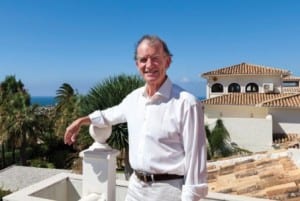

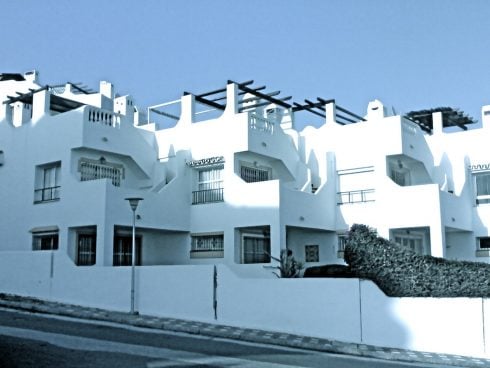
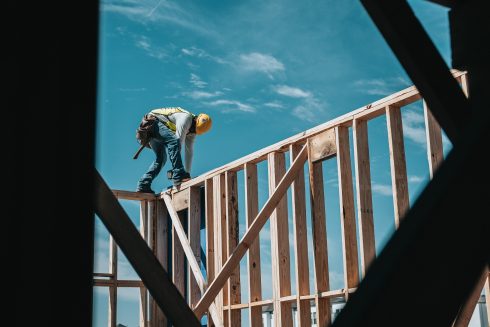
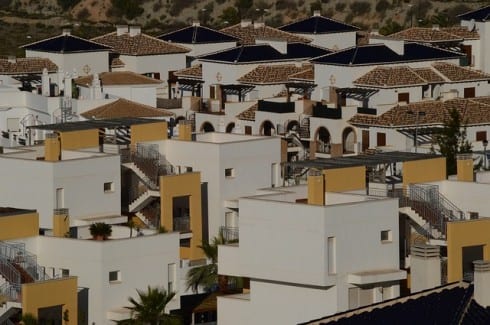


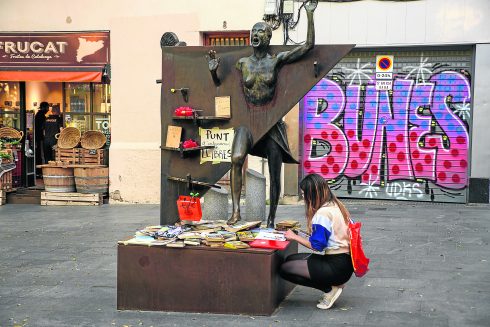



Fundamental errors in this article. As we have seen, time and time again, lawyers cannot ensure that paperwork is totally correct and that a property is “legal”. Sure, your surveyor can point out issues with land plot sizes, and the accuracy of the technical aspects of a property, but they have no idea, whatsoever, in its legality. Legaility can even be removed retrospectively, as we have seen in Marbella, so Spain remains high risk, and there’s no solution in sight.
Ignoring of course the actual construction and materials used to build the house, plus the position of the house in relation to flooding, soil erosion and possible landslide if situated at the bottom of a hill or mountain denuded of trees or other preventative measures. The legal aspects, the cart, should follow the horse, construction, location but then again what do I know only have worked in construction in three different European countries over a long period of time.
The local town hall can make trouble regardless of all the opinions of other s-called experts because, in the end, they have the ‘first; of many in a contentious legal power chain. These articles about getting ‘good legal advice are misleading and dangerous. At this time, don’t buy property in Spain.
Until the collusion game played by local council, developers and courts is fixed, there is no expertise to guarantee and enforce property rights.
When you are going to buy a house, what you need FIRST is the opinion of an architect or engineer.
They are the ones who can tell you if the property has any kind of structural/ construction problem.
On the other hand they are the ones who know the Código Urbano and Código de Edificación.
A lawyer or escribano can help you with the Títulos de Propiedad, Libre deuda and stuff.
So remember, call an architect or engineer first, or you can suffer this kind of thing:
“Leaking sewage and rotten floorboards: life on a ‘flagship’ housing estate”
Orchard Village in east London was built in 2014. But conditions are so bad that some residents think it should be demolished”
Hmm no, step #1 in today’s climate is to find out if the property is legal. Only then do you continue to the surveying stage, otherwise you could be surveying an illegal property, which is clearly a total waste of time and money. Surveying has to be done independently, and not by a builder, and it needs a proper report, so it will cost a bit, especially if you want soil samples to examine the foundation/slab and what it sits upon (essential for country villas). Those costs can sometimes be recuperated after the sale as a condition, and sometimes not, so find out in advance. Some owners will not allow a survey, or want to be their own person, so walk away in such cases. In Spain the legality issues are mostly done towards the middle to the end of the process, but if you are savvy, you will do it from the start and get every piece of paperwork, from the town hall down to the Junta and the central property archives. Make sure you hire a dedicated property lawyer too, and not a lawyer who is doing traffic violations and divorces (the main bulk of work that lawyers mostly do these days in Spain). Also make sure you visit the property at different times if possible. I once asked an owner if his garage would flood, and he said it has never flooded in 20 years. I went back in a torrential rainstorm, and the water was up to 2 feet and rising.
Orchard Village may have issues, but it’s not illegally built i.e. without planning permission, and that’s a big difference that you strangely fail to see. Perhaps you fail to see that on purpose to push the conversation towards the UK again, as you always do Pablo. I haven’t seen many floorboards in Andalucian properties btw, probably because of the termite risk. One day you’ll post something intelligent lol.
Soil examples?
You need soil examples BEFORE building the house, BEFORE doing the structural calculation.
Now, when the house is already built, there are a lot of señales / symptoms that indicate if the foundation was subdimensionada.
Have YOU ever heard of asentamineto diferencial??
Do YOU know the causes and consequences of that??
If you need a soil example, when the house is already built, to determinate if the platea de fundación was subdimensionada or if you have asentamiento diferencial, then you are not an architect or an engineer, but a boludo.
You should stop talking about things you dont understand.
On the other hand, when a building has risk of collapse, like in the case of Orchard Village, it doesn matter if it was legally built
I can only speak from personal experience. Soil samples are essential when considering country properties, but it is costly, and so it is rarely done by most purchasers – this will sadly be their downfall later if the foundation does has a serious issue. A couple of small bore-holes and soil analysis could cost around 1,000 euros, but the more the better (I had 4 done on my own property for example). Remember too that a property can have defects easily hidden, and I have seen at first hand Spanish surveyors’ reports that miss glaring issues. A report cannot be accurate unless it has a thorough analysis that goes beyond what the eye can see. Clearly, if the property has cracks you can put your hand through, or obvious movement that has shifted doors and windows, you don’t need to look any further, but for properties that seem in really good condition, especially expensive ones, I’d actually say you need to be more wary, purely because the investment and upkeep is greater.
The outside can be re-rendered for example, or walls can be rebuilt, retiled etc. This happens a lot in Spain, which is why cement mixers located outside some houses are commonplace lol. More importantly, soil and ground conditions change over time; the land a house was built on can be totally different 10 or 20 years later. Your house is only as good as the soil underneath is like NOW. underground streams and soil erosion are very commonplace. If you truly have found the house of your dreams, then proceed only if the owner takes it off the market whilst your investigative work is done.
When one considers a country property in Spain, one should always know legality first. There is no point investing any more time, hiring surveyors and a soil analysis company etc, to only find out later if the paperwork has issues and has potential risk. If a property is all sound, but not legal, it could end up being demolished or put in limbo, as has happened others. Pablo, you are just not talking common sense, and that’s what people need in a country like Spain, which after all is the “wild west” of property purchase.
Regarding Orchard Village, do you refer to the couple whose floor dropped 2-3 inches? That is not a “collapse”, serious as it was. It was also the only incident of its kind in that development. You must stop embellishing your statements as it will only erode your credibility further. Such an issue can be fixed, and it was. However, if the development had been illegal, then it could have water and electric supplies disconnected, as has happened in Spain, which means it could not be lived in at all. That is why legality is everything.
Subsidence caused by incompetently designed footing and foundations are a major problem in Northern Spain. Just look at all the cracks on building corners, and within the house. Clearly, foundation systems need to be designed for the soil, and building sites must be properly drained as well. But here they usually are not. So walls crack, corners open, horizontal beams drop, etc. But that is after all, ‘god’s will.’
Buying an apartment in Spain is probably the safest bet and normally quite straightforward but even then you can hit problems later on.
As far as Andalucia is concerned, buying an individual house on a plot is far more risky and a building licence can be revoked up to 25 years after the original licence was issued – it is rare but it can happen. So you have two hurdles, firstly you have to pass the statue of limitation period of 6 years (previously 4 years) and after that period, the house cannot be demolished – there is a new (national) law that states that individuals who bought property in good faith have to be compensated prior to any demolition. Secondly, even after the 6 year statute of limitation period, the building licence can still be revoked at any point up until that 25 year period has expired meaning your house becomes ‘alegal’ and difficult to sell.
There are moves to change the 25 year rule to 10 years but it will not happen overnight. Also, lawyers are campaigning for a workable central property register to be set up to make checking for infractions etc much easier at the time of purchase but again, that will not be happening immediately.
The property laws in Andalucia are not fit for purpose and need a radical overhaul.
Hey tonto,
Spanish architects specify the crap that passes for housing in Spain, not that I have respect for 99% of architects anywhere but if you were an experienced builder and you did’nt have total denial syndrome you would know that.
So YOU, boludo, don’t have respect for architects…
LOL
Question is what can you know about architecture and engineering.
Nothing, nada, niente.
Your opinion is as irrelevant as yourself.
Capisce, boludo?
The Director of Energy, School of Engineering, University of Oviedo, told me that architecture, construction engineering and aparejadores – all the people making construction technical, esthetic and sustainability decisions are woefully under educated and ill equipped for their jobs.
It is funny to read the comments of the typical uneducated poster of this “newspaper”.
But, you know, they live in those Little England ghettos, unable to get integrated with the locals and unable to understand the local language, so you cant expect too much from them.
All they do is to moan and whine 24/7.
Question is: why they dont return to their country?
But we don’t need to return, as your leader Mr Rajoy wants everyrhing to stay the same. Don’t you read he news?
All due respect, but it seems to me you know nothing about the words of politicians, diplomatic statements and stuff.
The only truth is this:
“EU citizens living in the UK could face legal limbo after Brexit
Leaked document reveals fears in Brussels that Home Office does not have systems in place to select who has right to stay”
And it will be reciprocal, of course.
A preparar la valijas…